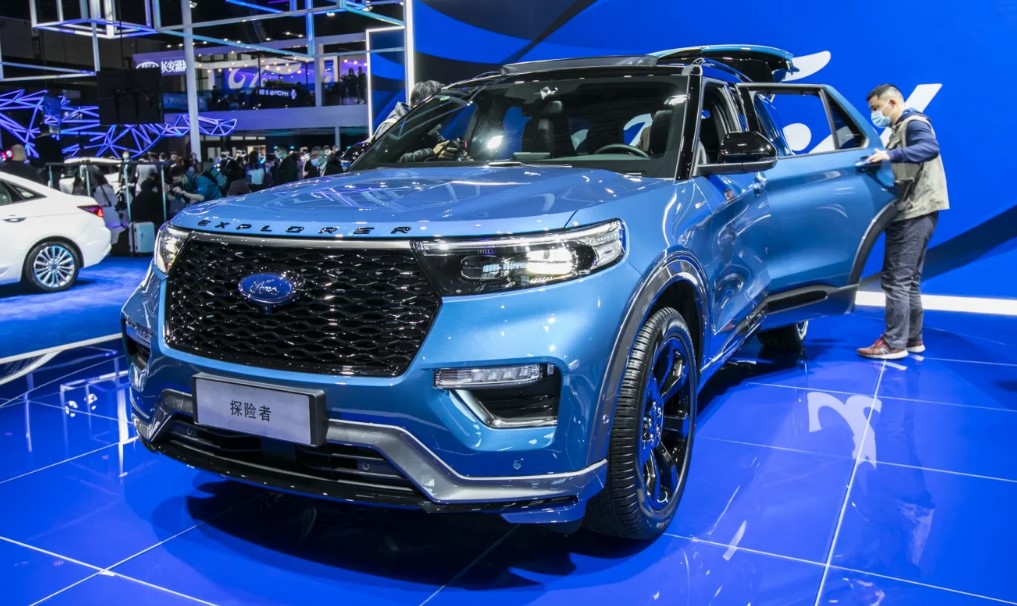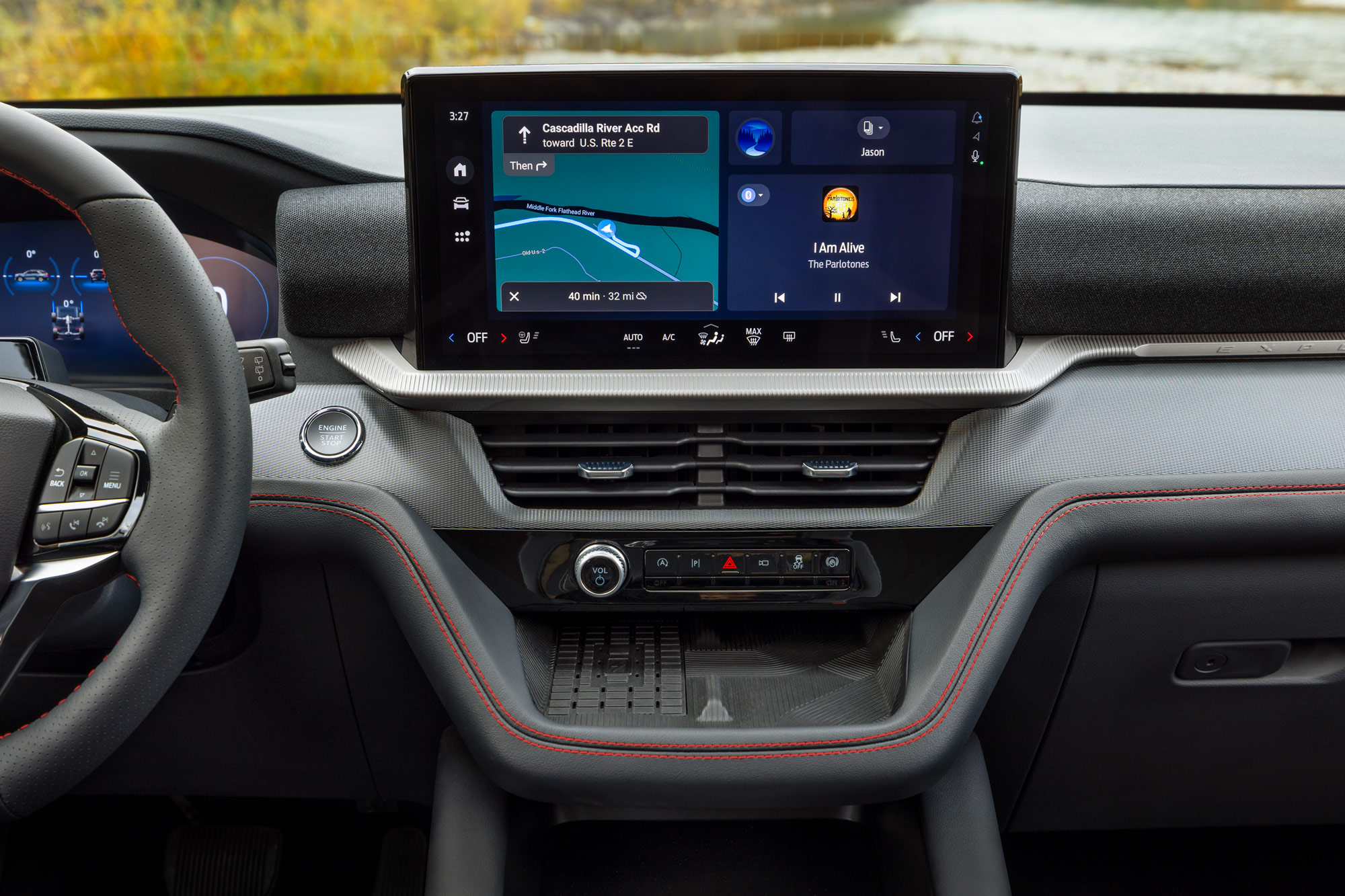Navigating the Future: A Comprehensive Look at the 2025 Explorer Build Date
Navigating the Future: A Comprehensive Look at the 2025 Explorer Build Date
Introduction
With enthusiasm, let’s navigate through the intriguing topic related to Navigating the Future: A Comprehensive Look at the 2025 Explorer Build Date. Let’s weave interesting information and offer fresh perspectives to the readers.
Table of Content

Navigating the Future: A Comprehensive Look at the 2025 Explorer Build Date
The year 2025 marks a significant milestone in the realm of technological advancement, particularly in the domain of artificial intelligence (AI). This date serves as a focal point for various initiatives and developments, often referred to as the "2025 Explorer Build Date." This period signifies a confluence of factors: the maturation of AI technologies, the increasing availability of data, and the growing need for innovative solutions in various sectors.
Understanding the Significance of the 2025 Explorer Build Date
The "2025 Explorer Build Date" represents a pivotal moment where AI is expected to transition from a nascent technology to a mature and integrated component of numerous industries. This transition is driven by several key factors:
- Technological Advancements: The rapid evolution of AI algorithms, particularly in areas like deep learning and natural language processing, is paving the way for more sophisticated and capable AI systems.
- Data Abundance: The exponential growth of data generated by individuals, businesses, and devices creates a rich resource for AI training and development.
- Increased Computational Power: Advances in hardware, particularly the development of specialized chips for AI processing, enable the execution of complex AI models efficiently.
- Growing Adoption: Businesses across industries are increasingly embracing AI to automate tasks, improve efficiency, and gain competitive advantage.
The convergence of these factors is expected to create a landscape where AI solutions are not just feasible, but also readily available and scalable. This signifies a shift from exploratory research and development to practical implementation and widespread adoption.
Benefits and Implications of the 2025 Explorer Build Date
The "2025 Explorer Build Date" is not just a date on the calendar but a catalyst for significant changes across various sectors. Some of the key benefits and implications include:
- Enhanced Productivity and Efficiency: AI-powered automation can streamline processes, reduce human error, and boost overall productivity in numerous industries, from manufacturing to healthcare.
- Improved Decision-Making: AI algorithms can analyze vast datasets and identify patterns that might be missed by human analysts, leading to more informed and data-driven decisions.
- Personalized Experiences: AI can personalize experiences for individuals, tailoring products, services, and content to individual preferences and needs.
- Innovation and New Opportunities: AI is driving innovation in various fields, creating new products, services, and business models that were previously unimaginable.
- Addressing Societal Challenges: AI can play a crucial role in addressing societal challenges, such as climate change, healthcare disparities, and poverty, by providing innovative solutions and insights.
However, the widespread adoption of AI also presents challenges and ethical considerations that need to be addressed. These include:
- Job Displacement: The automation of tasks by AI raises concerns about job displacement and the need for retraining and reskilling programs.
- Bias and Fairness: AI algorithms can perpetuate existing societal biases if they are trained on biased data.
- Privacy and Security: The use of AI raises concerns about data privacy and security, requiring robust safeguards and regulations.
FAQs Regarding the 2025 Explorer Build Date
Q: What are some specific examples of AI applications expected to be prevalent by 2025?
A: AI applications expected to be prevalent by 2025 include:
- Autonomous Vehicles: Self-driving cars and trucks, powered by AI, are expected to become increasingly common on roads.
- Personalized Healthcare: AI-powered diagnostics and treatment recommendations will be used to personalize healthcare for individual patients.
- Smart Cities: AI will be used to optimize traffic flow, manage energy consumption, and improve public safety in smart cities.
- Customer Service Chatbots: AI-powered chatbots will be widely used for customer service interactions, providing quick and efficient support.
- Fraud Detection: AI algorithms will be used to detect and prevent fraudulent transactions in financial institutions and other industries.
Q: How can businesses prepare for the 2025 Explorer Build Date?
A: Businesses can prepare for the 2025 Explorer Build Date by:
- Investing in AI Training and Development: Upskilling employees and investing in AI training programs to ensure a skilled workforce.
- Adopting AI Solutions: Identifying and implementing AI solutions that can improve efficiency and productivity in their operations.
- Developing AI Strategies: Creating comprehensive AI strategies that address ethical considerations, data management, and workforce implications.
- Collaborating with AI Experts: Partnering with AI experts and researchers to develop innovative solutions and stay abreast of the latest advancements.
Q: What are the ethical considerations surrounding the use of AI by 2025?
A: Ethical considerations surrounding the use of AI include:
- Bias and Fairness: Ensuring that AI algorithms are trained on unbiased data to avoid perpetuating societal biases.
- Transparency and Explainability: Making AI decision-making processes transparent and explainable to ensure accountability and trust.
- Privacy and Security: Protecting user data and ensuring the security of AI systems against malicious actors.
- Job Displacement: Developing strategies to mitigate job displacement caused by AI automation and provide reskilling opportunities for workers.
Tips for Navigating the 2025 Explorer Build Date
- Embrace Lifelong Learning: Stay informed about AI advancements and continuously update your knowledge and skills to remain competitive.
- Develop Critical Thinking Skills: Be able to evaluate AI-powered information and solutions critically, considering potential biases and limitations.
- Engage in Ethical Discussions: Participate in discussions about the ethical implications of AI and contribute to shaping its responsible development and use.
- Promote Collaboration and Partnerships: Collaborate with other individuals, organizations, and governments to address the challenges and opportunities presented by AI.
Conclusion
The "2025 Explorer Build Date" represents a pivotal moment in the evolution of AI, marking a shift from exploration to widespread adoption. By understanding the significance of this date, the benefits it offers, and the challenges it presents, individuals, businesses, and governments can prepare for a future where AI plays a transformative role in society. This requires a proactive approach, including investment in AI education, responsible development and implementation, and ongoing dialogue about the ethical considerations surrounding its use. As we navigate this new era of AI, the "2025 Explorer Build Date" serves as a reminder that we must embrace innovation while ensuring that AI is used for the betterment of humanity.








Closure
Thus, we hope this article has provided valuable insights into Navigating the Future: A Comprehensive Look at the 2025 Explorer Build Date. We hope you find this article informative and beneficial. See you in our next article!